Related Research Articles

The Hollywood Revue of 1929, or simply The Hollywood Revue, is a 1929 American pre-Code musical comedy film released by Metro-Goldwyn-Mayer. It was the studio's second feature-length musical, and one of their earliest sound films. Produced by Harry Rapf and Irving Thalberg and directed by Charles Reisner, it features nearly all of MGM's stars in a two-hour revue that includes three segments in Technicolor. The masters of ceremonies are Conrad Nagel and Jack Benny.
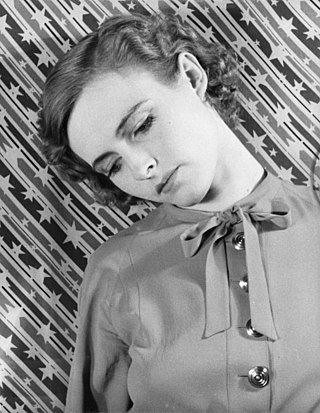
Lois Moran was an American film and stage actress.
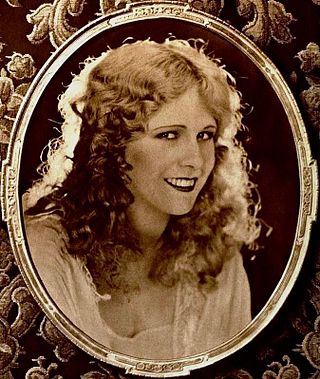
Betty Francisco was an American silent-film actress, appearing primarily in supporting roles. Her sisters Evelyn and Margaret were also actresses.

Showgirl in Hollywood is a 1930 American pre-Code all-talking musical film with Technicolor sequences, produced and distributed by First National Pictures, a subsidiary of Warner Bros. The film stars Alice White, Jack Mulhall and Blanche Sweet. It was adapted from the 1929 novel Hollywood Girl by J.P. McEvoy.
Chasing Rainbows is a 1930 American Pre-Code romantic musical film directed by Charles Reisner, and released by Metro-Goldwyn-Mayer.

She Learned About Sailors is a 1934 American musical comedy film directed by George Marshall and starring Alice Faye, Lew Ayres and Frank Mitchell. It was produced and distributed by Fox Film. Songs for the film were written by Richard A. Whiting and Sidney Clare.
Russell Brown was an American actor of stage, television, and screen. He also had a career as a journalist, working for several newspapers in the city of Philadelphia. On stage, he is a best known for his Tony Award-winning role of Benny Van Buren in the 1955 Broadway musical Damn Yankees; a role he also reprised on film in 1958. Other highlights of his work in film were his portrayal of Captain Brackett in Rodgers and Hammerstein's 1958 movie version of the 1949 Broadway musical South Pacific, and as park caretaker George Lemon in the classic courtroom drama, Anatomy of a Murder (1959). On television he portrayed the recurring character of Thomas Jones, the father of the title character, in the legal drama The Law and Mr. Jones from 1960–1962.
The March of Time is the title of an unreleased 1930 American Pre-Code musical film directed by Charles Reisner. The film was originally scheduled to be released in September 1930 by Metro-Goldwyn-Mayer but was shelved. The March of Time would have been one of the many musicals partially filmed in two-color Technicolor.
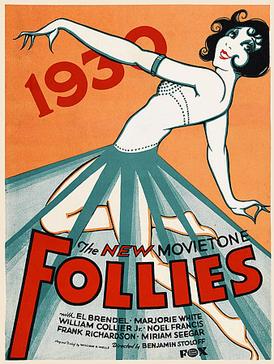
New Movietone Follies of 1930 is a 1930 American Pre-Code musical film released by Fox Film Corporation, directed by Benjamin Stoloff. The film stars El Brendel and Marjorie White who also costarred in Fox's Just Imagine in 1930.
Bubbles is a 1930 American Vitaphone Varieties short film released by Warner Bros. in Technicolor. It was filmed in December 1929 at the First National Pictures studio with Western Electric apparatus, an early sound-on-film system, Rel. No. 3898. Bubbles is one of the earliest surviving recordings of Judy Garland on film, at 8 years old.
Vitaphone Varieties is a series title used for all of Warner Bros.', earliest short film "talkies" of the 1920s, initially made using the Vitaphone sound on disc process before a switch to the sound-on-film format early in the 1930s. These were the first major film studio-backed sound films, initially showcased with the 1926 synchronized scored features Don Juan and The Better 'Ole. Although independent producers like Lee de Forest's Phonofilm were successfully making sound film shorts as early as 1922, they were very limited in their distribution and their audio was generally not as loud and clear in theaters as Vitaphone's. The success of the early Vitaphone shorts, initially filmed only in New York, helped launch the sound revolution in Hollywood.

Lucky Boy is a 1929 American musical comedy-drama film directed by Norman Taurog and Charles C. Wilson and starring George Jessel. The film was mainly a silent film with synchronized music and sound effects, as well as some talking sequences. The film's plot bore strong similarities to that of the hit 1927 film The Jazz Singer, which had originally been intended to star Jessel before Al Jolson took over the role.

Everett Marshall was an American singer and actor who performed at the Metropolitan Opera, in Broadway revues, and in early musical films.
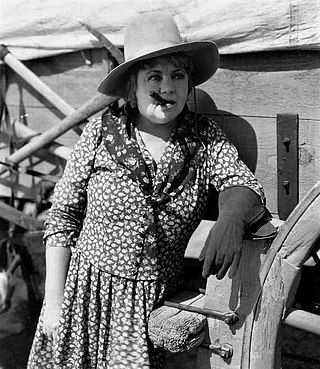
May Blossom Boley was an American actress known for her role as Whale Oil Rosie in Moby Dick (1930).

Arch Heath, also known as A. B. Heath and Arch B. Heath, was an American film director and screenwriter whose career spanned from the era of silent films to the 1940s. He helped pioneer the introduction of the sound film. Many of his early films are now considered lost.

Mary Lawlor was an American stage and screen actress.
Sidney Franklin (1870–1931) was an American stage and film actor. He appeared in around thirty films during the silent and early sound eras. His final screen performance was in Puttin' On the Ritz in 1930. On stage he portrayed Solomon Levy in the original production of Abie's Irish Rose.
The Framing of the Shrew is a 1929 American comedy film. It features an African American cast. It was produced by Al Christie and the story was by Octavus Roy Cohen. It was directed by Arvid E. Gillstrom. The plot depicts a husband who gets the upper hand on his wife using various tactics.
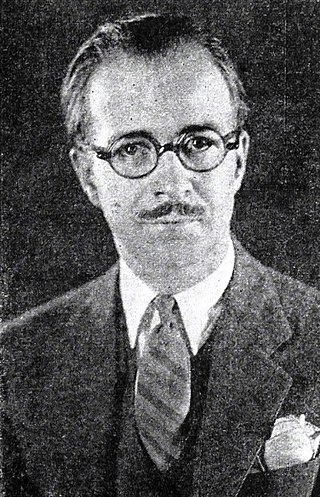
Renaud Hoffman (1895–1952) was a German-born American film director, screenwriter and producer of the silent and early sound era. He directed the 1929 musical Blaze o' Glory.
Helen Lynd, also known as Helene Lynch, was an American actress and comedienne active on stage and in film.
References
- ↑ Bradley, Edwin M. (2004-08-11). The First Hollywood Musicals: A Critical Filmography of 171 Features, 1927 through 1932. McFarland. ISBN 9780786420292.
- ↑ Bradley, Edwin M. (2016-02-11). Unsung Hollywood Musicals of the Golden Era: 50 Overlooked Films and Their Stars, 1929–1939. McFarland. ISBN 9780786498338.
- ↑ Film Daily; Film Daily (1931). Film Daily Year Book (1931). Media History Digital Library. New York, The Film Daily.